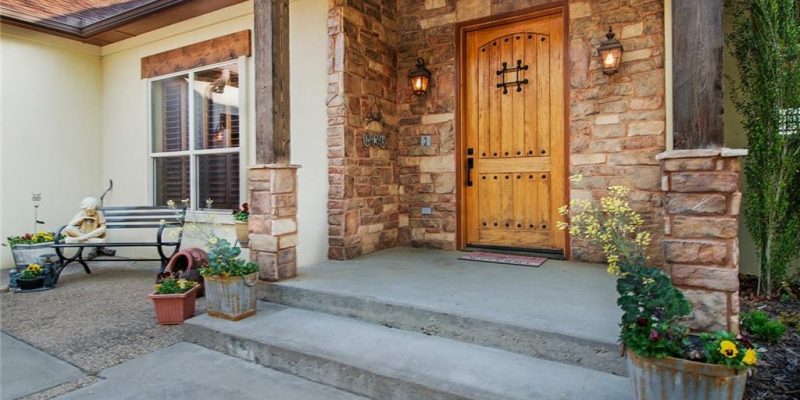Opendoor seems to be quite the topic of conversation these days. Is this the stress-free real estate model of the future? Or is the ibuyer model simply a gimmick? There are many Opendoor reviews online which are not favorable. I felt compelled to investigate further.
The big sell of Opendoor is the ease of transaction. Homeowners can sell directly to the company and skip the showings which can sometimes interrupt their daily lives. Buyers, working with Opendoor, can visit any of their homes listed with an instant key code and not have to wait on a Real Estate Agent.
As a real estate appraiser trained to protect consumer interest, I question the integrity of their “proprietary valuation model”. Should consumers trust their largest investment with emerging ibuying platforms like Opendoor?
I set out to study their model and provide an unbiased review. As I found out there are some positives as well as negatives.
Opendoor Pricing

The first thing that jumped out at me about Opendoor was their high costs (6 to 14 percent service fees + charges for any repairs they deem required, post closing) and that they keep their valuation in-house using a “proprietary algorithm”. Without an independent third-party appraisal, would a seller be giving up valuable home equity, potentially tens of thousands of dollars?
Their website stated otherwise, yet the Opendoor business model appears to be like home flippers who buy-low and sell-high.
People in dire straits or those with a home in need of more repair than they can or want to tackle will sometimes willingly walk away for a loss. In those type of situations an investor can reap the benefits financially by facilitating a quick sale or infusing some capital or elbow grease into the home.
Unlike flippers however, Opendoor, markets to main-stream sellers. In this frame, their reliance on “in-house” valuation models seems deceptive as it can easily mislead sellers into believing their home is significantly lower than it truly is.
Transparency
Some states, like Texas, are non-disclosure states. Here, the sales prices are kept confidential and not disclosed in public records. While it is often possible to gauge an approximate sales price based on the mortgage amount, Opendoor masks the mortgage amount of their purchase prices. For purposes of this analysis, purchase prices were calculated conservatively based on last known offering price and reasonable business practices.
Their fees and charges appear to be movable parts which I assume is based on how much of a profit they can build into their initial offer.
The Data
I set up a spreadsheet and studied their listings, public records, reviews and any other information available. Here’s what I learned with a few assumptions based on the gaps in the data.
They market their listings aggressively, hold plenty of open houses, and reduce the price about one percent starting two weeks from the date it was listed.
They charge the seller for any repairs deemed required. These charges are deducted after closing from the seller’s proceeds. Over $25,000 in some cases. While the Opendoor BBB rating is an A+, consumers have complained in some tell all reviews to the Better Business Bureau that they were charged a $100 for a light bulb, $6,000 for roof repairs, $1,200 for a/c repairs which were not needed and then not completed by the company. The company does respond to all complaints. They maintain that while they charge sellers for repairs, they think are relevant, it may transfer to the buyer as a discount in price and therefore they do not need to perform the actual repairs.
Their valuation model most likely builds in a minimum 10-percent profit margin in addition to the 6 to 14-percent service charge. I’m sure like most investors they can raise or lower the fees to reach a certain profit margin.
When purchasing they take about 22 days to close then turn around and list it within 2 to 5 days. Not much time for any serious repairs, remodeling or updating.
They target expired listings on the local MLS systems. Once acquired, these properties are then listed slightly below the expired listing price. It’s likely they paid at least 10-percent less than the expired listing price and asked for money for any repairs plus their service charge.
FOR BUYERS
The Positive
The convenience of downloading their app and using a keyless entry to view homes is appealing to buyers. This innovation is the future of the real estate sales world.
Local buyers who understand their neighborhoods will find value in viewing homes on their own time without waiting on an agent. These days even out of town buyers do most of their own research online.
The Negative
The risk for buyers which is pertinent even in the traditional real estate model is the newly introduced bifurcated appraisal (uber appraisal). Fannie Mae’s brainchild whereby unlicensed individuals (not an appraiser) will complete the appraisal inspection and an appraiser at the desk of a financial institution will most likely rubber stamp an appraisal to meet the sales price. If the home is over-priced and you have waived all right to hold anyone responsible then you may just be stuck in the home unable to sell or move and repaying a mortgage higher than the home value. However, that topic is for a whole other article. My advice to buyers is to obtain an appraisal on your own.
Another drawback for buyers is the lack of experience and advocacy. Having an extra set of trained eyes to guide you can be an important benefit. This is assuming you visit Open door properties on your own without a Realtor. And that you would otherwise have a Realtor that is looking out for you and knows the market and has experience in protecting and advocating for their clients.
FOR SELLERS
The Positive
In cases of need or time constraints the Opendoor model can be of benefit to Sellers. You do have to pay for the convenience with a large portion or maybe all the equity in your home. However, Opendoor does take on the risk and time involved to market and sell your home.
The Negative
For sellers there is little benefit with ibuyers like Opendoor. If capitalizing on potential equity from years of costs for mortgage payments, HOA, warranty and maintenance is not a priority to you wouldn’t renting have been the smarter choice?
My study of Opendoor served to confirm that they really are a more sophisticated investor model. The high service charge, repair costs and a low value estimate could easily cancel out all or some of a seller’s equity.
Their massive marketing plan speaks to being inclusive and competitive. However, my suspicion was confirmed that their target market is sellers in need or unaware of the accurate market value of their home.
Thanks to the likes of Zillow consumers are misled about the true value of their home and companies like Opendoor can then build in a hefty profit margin when they make the homeowner an offer.
Sellers who spend a good deal of time and income maintaining their home and purchased with the intention of building equity should not find much appeal in Opendoor’s business model.
The convenience factor they advertise comes at too high a cost. Are you willing to give up between 17 and 25-percent of the true market value of your home? On a $300,000 home that would be giving up between $51,000 to $75000 of your home equity. Most people will deal with the inconvenience of showings for a month or two before walking away from that much money. For many that is a significant portion, if not an entire, annual income.
Do Your Homework
In case you are a seller considering the ibuyer Opendoor just for the convenience factor, my advice is to contact a local appraiser and obtain a Pre-Listing Appraisal. This will inform you about the marketing time for your neighborhood and the true market value of your home. Then you can make an informed decision.
To Opendoor or Not to Opendoor
The appeal of Opendoor to most sellers should be low. The keyless entry for buyers is a win in my book and the future of real estate. Sellers get the short end of the stick with the high fees and in-house valuation of their home.
While advances in technology is making a significant impact on how real estate is transacted, I don’t see iBuyers completely taking over the real estate market. With the price tag on homes, and wolves all around, there will always be a need for consumers to garner the services of industry professionals that provide strong advocacy and guidance. Realtors that want to compete in this new marketplace will have to re-think the value they bring to their clients.
Eventually app driven shops and keyless entry for qualified buyers will most likely become the norm.
While Opendoor may stick around for a while I’m not sure the model is sustainable the way it is. The lack of consumer protection and government regulation over the ibuying platforms is worrisome. In these days of the information superhighway word gets around and the tell-all reviews that are building may soon demand greater transparency and clarity of their business model.
For now, it seems the traditional real estate model and the ibuyer Opendoor model are going to have to learn to coexist. And maybe over the next ten years or so we will see other more consumer conscious hybrids develop.
[listings market=”harmls” listPrice=”1000000+” size=”4000+” listingType=”residential” sortfield=”daysOnHJI” sortorder=”asc” pageSize=”18″ grid_size=”0″ map=”0″ pagination=”1″ search_widget=”1″ slider=”1″]




